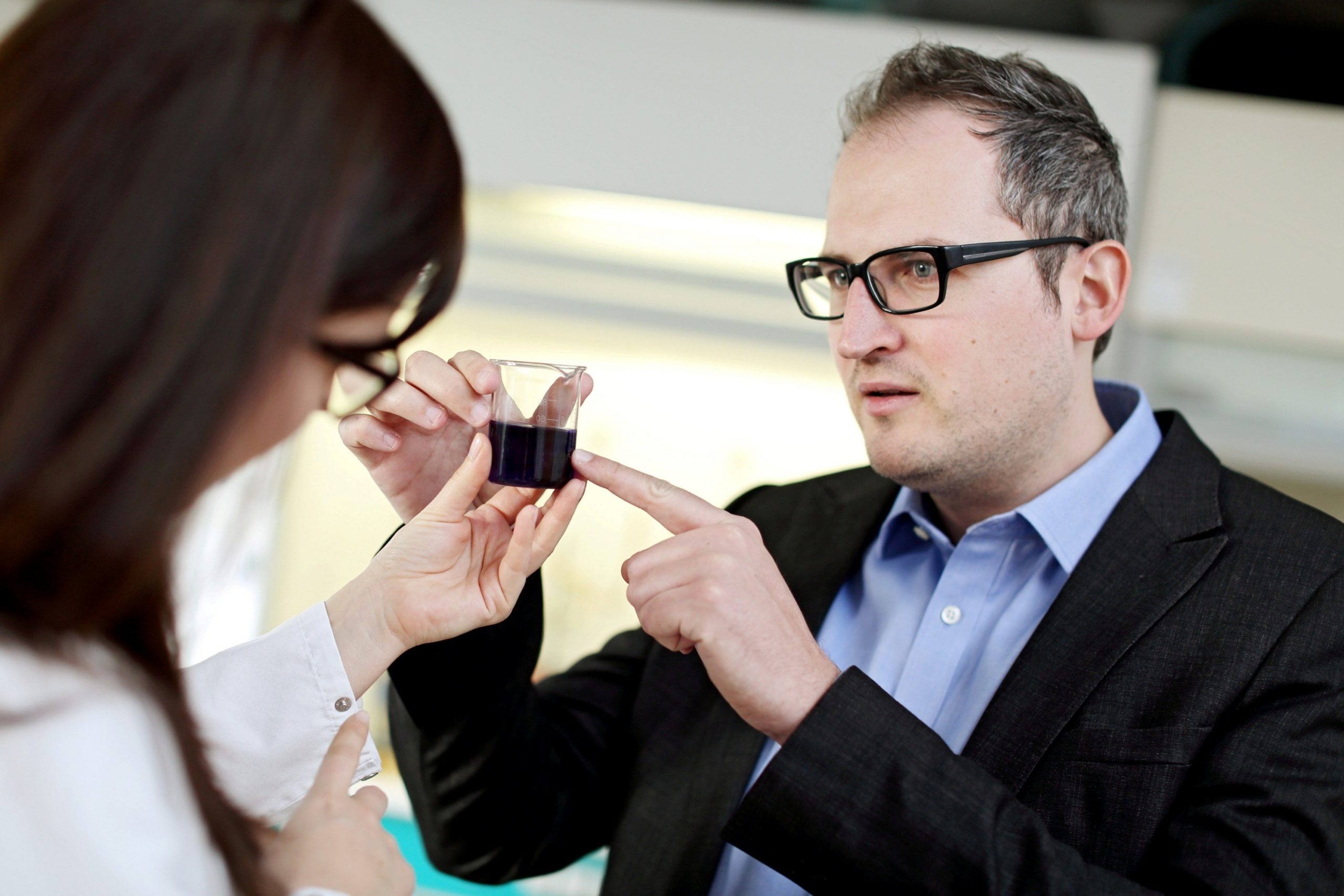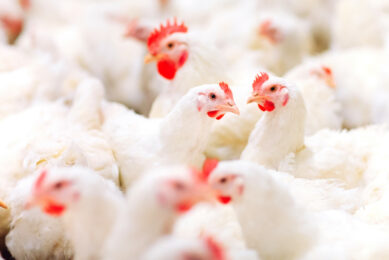Delacon: Connecting with millennial foodies

Delacon’s CEO, Markus Dedl talked to All About Feed about connecting with Millennials – the consumers of today and the spenders of tomorrow.
They outnumber Generation X and are far more influential than the baby boom generation. Millennials, born between the early 80s and mid 90s, are the most highly educated and culturally diverse group of all generations, closely connected to their social and environmental surroundings they are expected to make up approximately half the workforce by 2020. They are the consumers of today and will be the big spenders of tomorrow. “It is this group of people, highly involved with what they eat and how it is produced, we need and want to communicate with,” says Mr Dedl. He continues: “We think there is a tremendous opportunity to connect with millennials with a story about animal wellness, good management practices and natural plant-based feed ingredients.”
Why would an additive company connect with consumers, while their primary business is with the feed industry?
“We at Delacon claim that we are pioneers in our field of expertise. Being at the forefront of the industry means that we have to look beyond the borders of day-to-day business. We want to have an information base that goes well beyond what is expected from us to be able to help our customers in offering the best choice for their customers.”
How does that pan out?
“It’s essential to know what makes the world go round on a consumer’s level. Yes, we develop and manufacture additives, our customers make feed and their customers produce animal protein. That said, there is a great potential to interact with consumers and educate them about the way we cater to their protein needs. We have to be honest, agriculture has a dilemma to some extent when it comes to consumer trust and communication. We want to be transparent, in order to do that we have to communicate and above all, have an honest story to tell.”
I can imagine that the concept of phytogenics is somewhat far-fetched for the average consumer. How do you bridge the knowledge gap?
“Of course phytogenics aren’t on the average consumer’s radar. However, millennial foodies do care about animal well-being and the environment. When selecting their food, they actively search for added value propositions such as ‘raised with good animal welfare practices’, ‘raised without antibiotics’ and ‘raised in ways that reduce environmental impact’. They can relate to the fact that raising and feeding chickens with herbs and plant extracts contributes to overall ‘well-being’. The benefits of feeding phytogenics, with the potential to promote gut health, reducing ammonia emissions and being a proven performer in antibiotic-free production, support a compelling narrative.”

What did you learn from the survey among millennial foodies?
“First of all they ‘dig’ the concept of plant-based feed ingredients. The survey showed that nine out of ten millennials say meat and poultry produced with phytogenics would have a positive impact on their brand choice. Secondly, there is a way we can communicate with them. Nearly two-thirds of them look at food labels closely, suggesting an untapped opportunity for food brands to differentiate themselves with the powerful story of phytogenics.”
What can you do with the results?
“Realising that if millennial foodies knew that animals were fed phytogenics, 62% of them would feel great about their food choice and that will help us to connect with them. This is an outcome we can have discussions about with our customers, discussing marketing and food labelling strategies to differentiate their food brands. As mentioned before, as a pioneer, we see it as our duty to help customers by developing and providing solutions that work. For the producers themselves, for the animals, for the environment and of course for the consumers.”
Just recently the European Center for Disease Control issued an alarming statement that bacteria resistant to antibiotics are on the increase. Is the growing awareness helpful to your business?
“Consumers and legislators demand that the livestock industry know their production is sound, using only the minimum amounts of medicines. Supporting animal gut health and integrity with phytogenic feed additives does certainly help in reaching this goal. That said, the silver bullet that can replace all antibiotics doesn’t come from us. We are realistic enough to see that we are only a part of the antibiotic-free solution. We see some good combinations between phytogenics and for instance esterified MCFA’s, but they only work well when we throughly understand the problems the animals face.”
Are phytogenics top-of-mind when it comes to phasing out antibiotics?
“The phasing out of antibiotics from feed has certainly accelerated our business to some extent. Especially in the US. But we also sell our products in countries where antibiotics are still allowed. That said, many know that there is an expiration date on in-feed antibiotics and they are actively looking for alternatives. We need to solve the problems, but not all in one day. It is like driving an electric car, I will not save the planet by doing so, but it is my contribution to saving the planet which makes me feel good. And that is the ultimate reason why people do things.”
Stamp of approval
Developing and producing a feed additive that really makes a difference is a challenge for any company. Then again, it seems almost simple in comparison to convincing the European Food Safety Authority (EFSA) and the European Commission. Just last month, after a six-year long procedure, the European Commission published the authorisation of Delacon’s poultry feed additive Biostrong 510 EC as a zootechnical additive, giving it the so sought after approval. Safety and efficacy of the product have been confirmed for use in chickens and minor avian species, both for fattening and reared for laying. The category of zootechnical additives is seen as the scientific gold standard in the feed additive industry.

It is the second milestone for the company after the approval of the piglet feed additive Fresta F in 2012. This product more or less paved the way for Biostrong, however, the procedure was still difficult because of the composition of the product. Getting a single compound approved by the European Commission is pretty straight forward. The Delacon additive is far from a single compound. It consists of a preparation of partially micro-encapsulated essential oils from thyme and star anise, blended with herbs and dried spices. And its efficacy relies partly on using the synergistic effects of the active substances. This can be measured in animal trials, looking at performance and feed conversion and by doing so replacing belief with scientific knowledge. However, it took great effort to document and explain to the regulatory bodies of the EU.
From chemicals to botanicals
It may sound strange but the idea of using plant-based compounds for feed additives at Delacon, started in the chemical industry. It was at the Austrian state owned company Chemie Linz where Helmut Dedl made a career in the innovations department. When the company was split up and privatised, Dedl senior started his own business and founded Delacon in 1988.
He started blending botanicals in a garage and soon realised there was great potential in the plant-based substances, especially as a tool to support in replacing antibiotic growth promoters. His vision materialised and got traction in the years that followed. Together with nutritionists and technicians Helmut Dedl learned more and more how botanicals work and interact with each other. He invented the term ‘phytogenic feed additives’ as a new group of additives and grew his business, before handing over the management to his son Markus Dedl in 2010. Since then the company displayed strong growth and new product developments in a time antibiotic reduction and animal performance are top-of-mind all around the world. More than 1% of all compound feed in the world is made using Delacon additives, the equivalent of Starbucks’ share of the world-wide coffee market.











